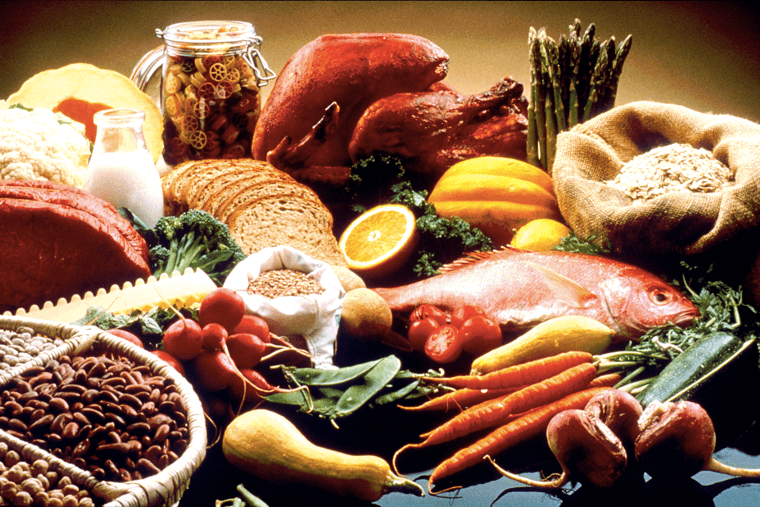Intestinal Bacteria Are Key to Understanding Obesity
By Bradley Fox, ‘21

Source: Wikimedia Commons Caption: Danish researchers have found that bacteria in our gut play a key role in the persistence of obesity and the failure of common weight-loss dieting plans.
Have you ever wondered about the bacteria in your gut? If not, does the gruesome intestinal image now entering your mind make you question why these small organisms are the subject of current weight-loss research?
A recent study from the University of Denmark, Copenhagen, describes an extraordinary new breakthrough in the field of nutrition: the role of intestinal bacteria in weight loss and obesity (1, 2). As the study found, these small digestive organisms, measured and recorded through fecal samples and blood tests, can play a decisive role in regulating the body’s response to healthy dieting (1).
In the study, 31 subjects followed a “New Nordic Diet” (2) consisting of recommended fruits, vegetables, fibers and whole grains for 26 weeks. Afterwards, it was found that the subjects lost an average of 3.5 kg, which was 1.8kg more than that lost by a separate control group of 23 subjects eating an older “Average Danish Diet” (2). Thus, the New Nordic Diet appeared to be more effective on average as a method for losing weight and regulating obesity (2).
What surprised researchers more, however, was the range of weight loss that occurred within the New Nordic Diet group that was almost entirely dependent on the composition of intestinal bacteria in each subject. Subjects on the New Nordic Diet that had a high proportion of Prevotella-bacteria compared to Bacterioides-bacteria lost an average of 3.5 kg more than those of similar bacterial composition from the Average Danish Diet group (1). Meanwhile, subjects on the New Nordic Diet with a low proportion of Prevotella-bacteria saw no apparent difference in weight loss (1).
These results- confirmed in a second, independent study- suggest that increased dieting will only benefit those with a higher proportion of Prevotella-bacteria (1). Since only about half of the population has a higher proportion of this bacteria (2), only this group will see significant weight reduction from eating a more well-rounded diet of fruits, vegetables, fiber and whole grains (1). The other half, according to Assistant Professor Mads Fiil Hjorth at the Department of Nutrition, Exercise and Sports at the University of Copenhagen, should “focus on other diet and physical activity recommendations until a strategy that works especially well for them is identified” (1).
The breakthrough research implies that there is not a “one size fits all” (1) approach to dieting; differences in intestinal bacterial can help people of different compositions to choose the most effective weight loss treatment. The key to treating obesity thus may lie not solely in food or exercise, but in the unique intestinal microbiomes of those affected.
- M F Hjorth, H M Roager, T M Larsen, S K Poulsen, T R Licht, M I Bahl, Y Zohar, A Astrup. Pre-treatment microbial Prevotella-to-Bacteroides ratio, determines body fat loss success during a 6-month randomized controlled diet intervention. International Journal of Obesity, 2017; DOI: 10.1038/ijo.2017.220
- Faculty of Science – University of Copenhagen. “Your stools reveal whether you can lose weight.” ScienceDaily. ScienceDaily, 12 September 2017. <www.sciencedaily.com/releases/2017/09/170912093122.htm>.

Leave a Reply